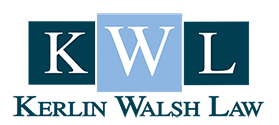Blog Articles
Info About Wills, Trusts, and More…
Hello and welcome! I am Eileen Kerlin Walsh, and I will bring you valuable and topical information on Estate Planning. Estate Planning is the legal process of protecting your assets and your loved ones in the event of disability or death.
Why do you need an estate plan? If you don’t have a valid Will or Trust, Illinois law determines how your assets pass, to whom and when. Having no estate plan can lead to unnecessary taxes, creditors, probate court and other undesirable results. This is the most costly way to pass assets to your loved ones. You can do much better and my column will show you how!
Beneficiary and Transfer-on-Death Designations: Are You Doing It Right?
Do you know which of your accounts have beneficiary designations, sometimes called transfer-on-death (TOD) or payable-on-death (POD) designations? Have you updated them recently? Are you aware of what can go wrong if there are issues with your beneficiary designation...
Choosing the Ideal Trust for Your Wishes
The term estate may bring to mind mansions, vast fortunes, and a level of wealth that many people do not possess. This misconception may lead to the false impression that estate planning is only for the rich and famous, discouraging those with more modest means from...
Have a Harmonious Family that Does Not Fight? You Still Need an Estate Plan
In many families, everyone gets along, happily gathering for the holidays, sharing laughs, telling stories, and enjoying each other’s company. Then, the matriarch or patriarch dies. Suddenly, years of pent-up resentment and hurt feelings surface, and the once-happy...
How Do You Want to Leave Your Money Behind?
Is Outright Distribution the Perfect Fit for Your Loved Ones? Although Americans are living longer and spending more time—and money—in retirement, many parents intend to leave an inheritance to their children. The exact amount can vary greatly depending on individual...
Assisting Your Client: Top 3 Questions to Ask Your Clients About Their Estate Plan
As a trusted advisor, you provide expert guidance to your clients regarding many financial planning matters. It makes sense that you will come across clients who ask about estate planning. Even if they do not ask, you can start the conversation by inquiring if they...
Assisting Your Client: The Advisor List–A Powerful Tool for Client Care and Business Growth
Financial and legal planning often emphasize complex strategies that clients can use to manage their affairs. However, what about the simple, practical tools that can make a difference in our clients’ lives? One such tool is the advisor list, a centralized document of...
Assisting Your Client: Having An Asset Protection Planning Discussion With Clients
Discussing asset protection planning with clients A common misconception is that asset protection planning is only for high-net-worth individuals or people who work in professions susceptible to malpractice claims, such as doctors or lawyers. That is not the case. In...
Assisting Your Client: Debunking Common Misconceptions About Wills
One of the most common reasons clients think they do not need a will is that they do not have enough assets. High-net-worth clients tend to be more proactive about estate planning. However, misconceptions about wills abound, which is a big reason many Americans do not...
Assisting Your Client: Helping Your Clients Stay On Top Of Their Affairs
Clients Need an Ongoing Inventory of What They Own Before you can help your clients get to where they want to go on their wealth journey, you need to understand where they are right now. Doing so involves inventorying their assets (everything they own) and keeping the...
Assisting Your Client: Is a Will Right for Your Clients?
Every client, regardless of the size of their estate or their age, can benefit from a will that gives legal effect to their inheritance plan. Even if they have a trust to manage asset distributions, a trust cannot address every estate planning consideration. Wills...
